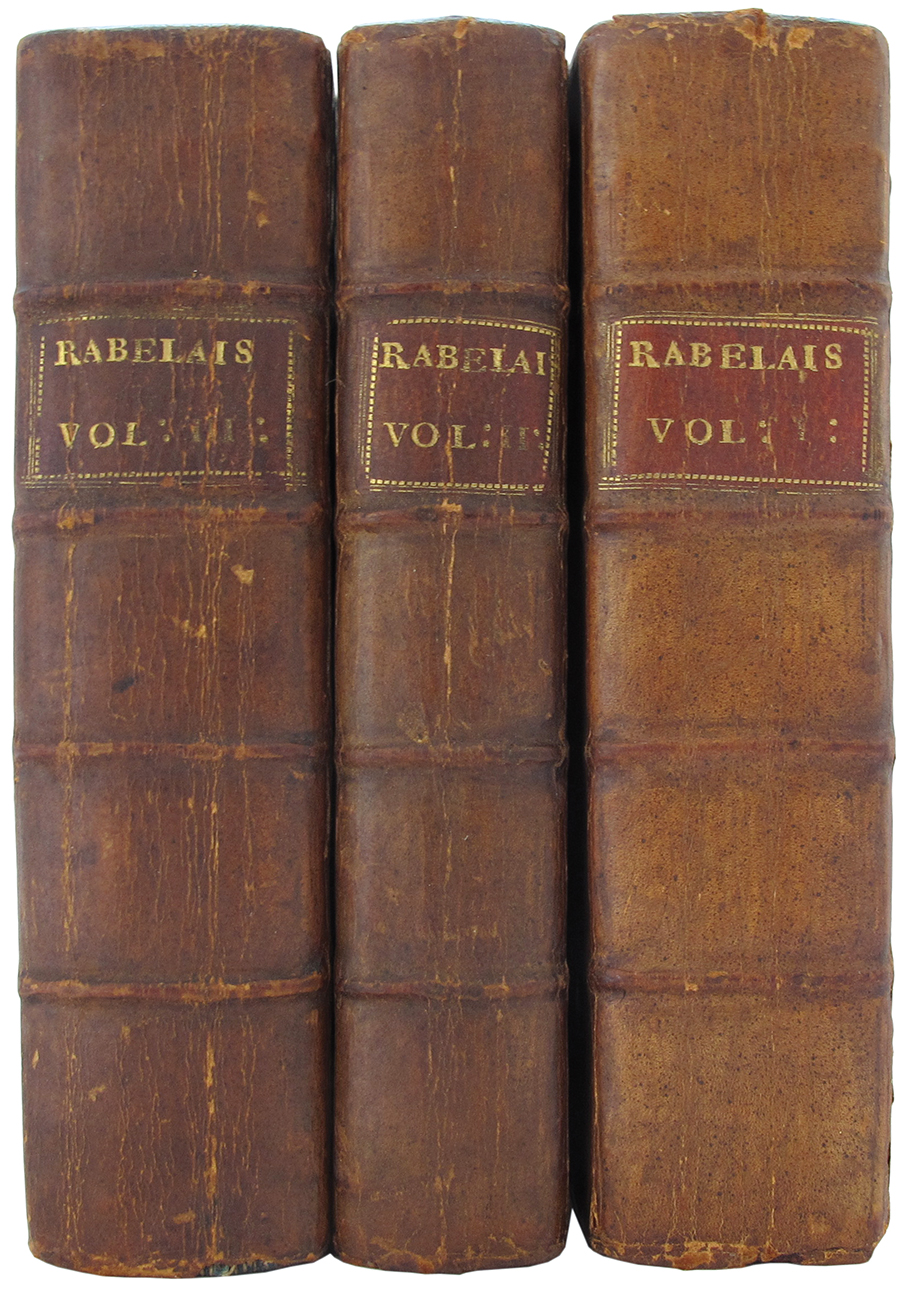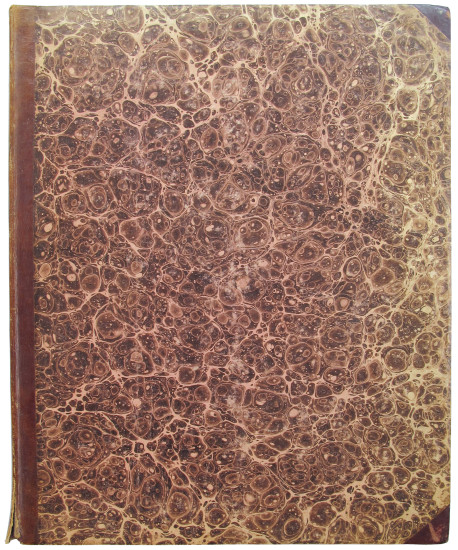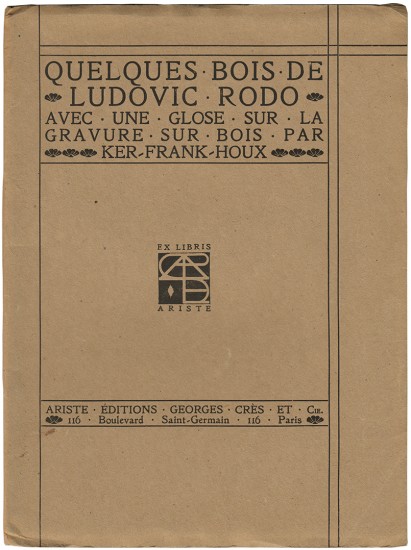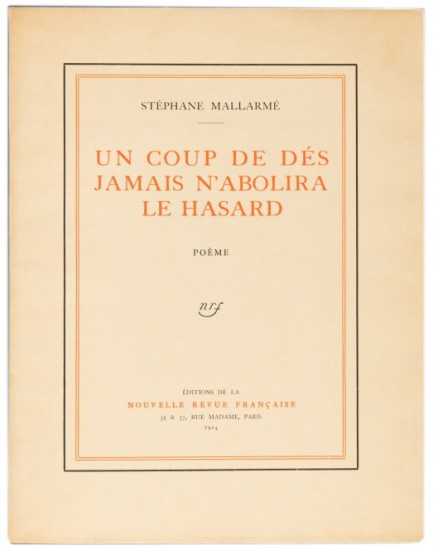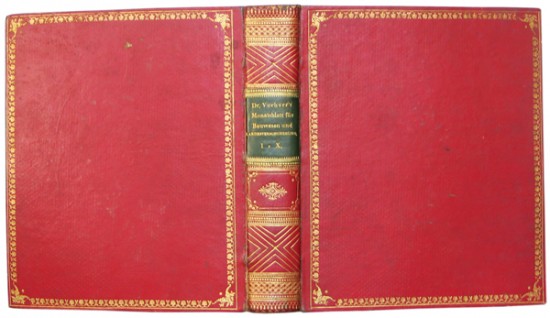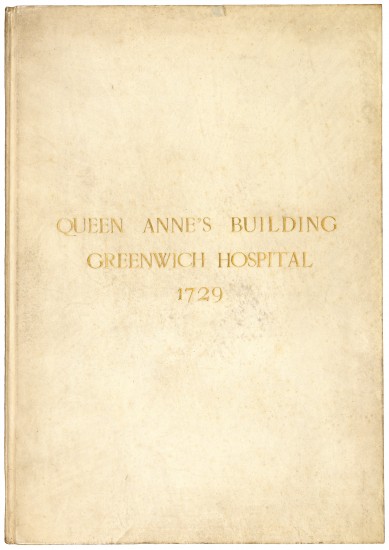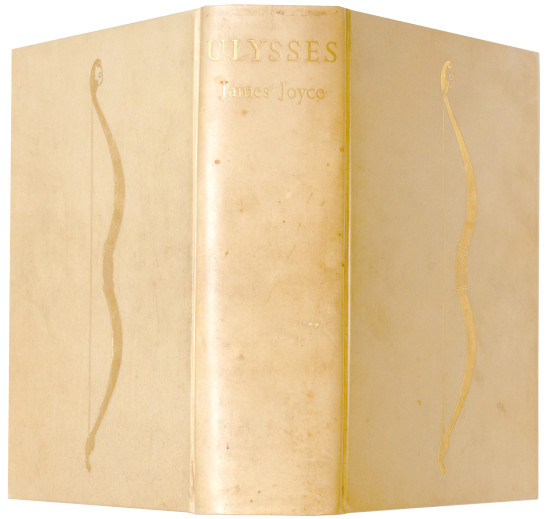The Works of F. Rabelais, M. D. Or, The Lives, Heroic Deeds and Sayings of Gargantua and Pantagruel ... The Second Book ... Treating of the Heroick Deeds and Sayings of the Good Pantagruel [WITH:] The Third Book ... Containing the Heroick Deeds of Pantagruel the Son of Gargantua ... Never Before Printed [AND:] Pantagruel's Voyage to the Oracle of the Bottle Being the Fourth and Fifth Books ... To Which Is Added The Pantagruelian Prognostication; Rabelais's Letters, and Several Other Pieces by That Author
Rabelais, François. Urchard (Urquhart), Sir Thomas & Peter Motteux
London. Printed for Richard Baldwin. 1693–1694
A beautiful and complete copy of the very scarce first complete edition in English of Rabelais' 'Gargantua and Pantagruel' in an elegant English contemporary binding.
François Rabelais (c.1494 - 1553), writer, physician, humanist, anatomist, scholar, monk and wit, published this, his magnum opus of satire, parody, wine and humour, over the course of many years, beginning in 1532 with the first book and concluding only after his death in 1553 with the publication of the possibly spurious fifth book c.1564. Rabelais' epic, first issued under the anagrammatic pseudonym 'Alcofribas Nasier' is indebted to Erasmus and his 'The Praise of Folie' and has been extraordinarily influential. To place Rabelais at the side of Dante, Boccaccio, Cervantes, Shakespeare and the giants of European literature is in no way to exaggerate his importance. Rabelais' influence on the development of the novel and the English novel in particular is uncontested. A first suggested imitation of Rabelais' style in English has been dated to as early as 1534 (Book I was likely published in 1532) while the influence on Swift, Sterne and Robert Burton is overtly apparent. Shakespeare is posited to have read Rabelais ('As You Like It' refers to 'Gargantua's mouth') and despite Joyce's denials both 'Ulysses' and 'Finnegans Wake' feature elements with characteristics of the Rabelaisian.
The first two books were translated into English by Sir Thomas Urquhart (1611 - 1660, here listed as Urchard), a noted Royalist, author (he outlined his own universal language in his 'Logonpandecteision' of 1653) and translator, most famous for this highly-regarded translation of Rabelais and the likely apocryphal legend that he died of laughter on hearing of the restoration of Charles II. Urquhart's Book I and Book II were published in 1653 and 1664 before their reissue here by Peter Motteux together with the first printing of Urquhart's translation of Book III and Motteux's own translations of Book IV and Book V, the 'Pantagruelian Prognostication' and additional work by Rabelais including his 'Letters Written ... During His Stay in Italy in the Year 1536'. The extensive laudatory material printed in Book I including 'Some Learned Mens' Opinion of Dr. Rabelais', Nahum Tate's 'A Familiar Epistle to Mr. Baldwin On His Publishing the Translation of Rabelais', 'On the Incomparable Works of the Learned Dr. Rabelais', On the Works of Rabelais Translated' and 'On the Most Diverting Works of the Learned Dr. Rabelais', are all printed here for the first time.
Due to the complicated publication history - not to mention the complications of the bibliographical records - with Book III published the year before the remaining texts and the fact that Book I and Book II were likely issued together in a single volume (they are usually found bound as one) as (possibly) were Book IV and Book V, it is uncommon to find copies that are either complete or that are bound in uniform style at a contemporary date as is the present set. The present set is a wonderful exemplar of an important seventeenth century text in English preserved remarkably in its first binding.
'Belinski called Rabelais a genius, the sixteenth-century Voltaire, and his novel one of the best of times past. Because of his literary power and historical importance, Western literary critics and writers place him immediately after Shakespeare or even next to him. The French Romanticists, especially Chateaubriand and Hugo, included him among the greatest 'geniuses of humanity' of all times and nations. He was and is still considered not only a great writer but a sage and a prophet ... his place in history among the creators of modern European writing, such as Dante, Boccaccio, Shakespeare, and Cervantes, is not subject to doubt. Rabelais not only determined the fate of French literature and of the French literary tongue, but influenced the fate of world literature as well ... '. (Mikhail Bakhtin).
[Wing 104, 104a, 107, 109, 110; Pforzheimer 814 (for the first edition of Books I & II), 815 & 816; ESTC R29255, R26911 & R2564; see 'Rabelais and His World' by Mikhail Bakhtin (trans. Helene Iswolsky), Bloomington, 1965].
François Rabelais (c.1494 - 1553), writer, physician, humanist, anatomist, scholar, monk and wit, published this, his magnum opus of satire, parody, wine and humour, over the course of many years, beginning in 1532 with the first book and concluding only after his death in 1553 with the publication of the possibly spurious fifth book c.1564. Rabelais' epic, first issued under the anagrammatic pseudonym 'Alcofribas Nasier' is indebted to Erasmus and his 'The Praise of Folie' and has been extraordinarily influential. To place Rabelais at the side of Dante, Boccaccio, Cervantes, Shakespeare and the giants of European literature is in no way to exaggerate his importance. Rabelais' influence on the development of the novel and the English novel in particular is uncontested. A first suggested imitation of Rabelais' style in English has been dated to as early as 1534 (Book I was likely published in 1532) while the influence on Swift, Sterne and Robert Burton is overtly apparent. Shakespeare is posited to have read Rabelais ('As You Like It' refers to 'Gargantua's mouth') and despite Joyce's denials both 'Ulysses' and 'Finnegans Wake' feature elements with characteristics of the Rabelaisian.
The first two books were translated into English by Sir Thomas Urquhart (1611 - 1660, here listed as Urchard), a noted Royalist, author (he outlined his own universal language in his 'Logonpandecteision' of 1653) and translator, most famous for this highly-regarded translation of Rabelais and the likely apocryphal legend that he died of laughter on hearing of the restoration of Charles II. Urquhart's Book I and Book II were published in 1653 and 1664 before their reissue here by Peter Motteux together with the first printing of Urquhart's translation of Book III and Motteux's own translations of Book IV and Book V, the 'Pantagruelian Prognostication' and additional work by Rabelais including his 'Letters Written ... During His Stay in Italy in the Year 1536'. The extensive laudatory material printed in Book I including 'Some Learned Mens' Opinion of Dr. Rabelais', Nahum Tate's 'A Familiar Epistle to Mr. Baldwin On His Publishing the Translation of Rabelais', 'On the Incomparable Works of the Learned Dr. Rabelais', On the Works of Rabelais Translated' and 'On the Most Diverting Works of the Learned Dr. Rabelais', are all printed here for the first time.
Due to the complicated publication history - not to mention the complications of the bibliographical records - with Book III published the year before the remaining texts and the fact that Book I and Book II were likely issued together in a single volume (they are usually found bound as one) as (possibly) were Book IV and Book V, it is uncommon to find copies that are either complete or that are bound in uniform style at a contemporary date as is the present set. The present set is a wonderful exemplar of an important seventeenth century text in English preserved remarkably in its first binding.
'Belinski called Rabelais a genius, the sixteenth-century Voltaire, and his novel one of the best of times past. Because of his literary power and historical importance, Western literary critics and writers place him immediately after Shakespeare or even next to him. The French Romanticists, especially Chateaubriand and Hugo, included him among the greatest 'geniuses of humanity' of all times and nations. He was and is still considered not only a great writer but a sage and a prophet ... his place in history among the creators of modern European writing, such as Dante, Boccaccio, Shakespeare, and Cervantes, is not subject to doubt. Rabelais not only determined the fate of French literature and of the French literary tongue, but influenced the fate of world literature as well ... '. (Mikhail Bakhtin).
[Wing 104, 104a, 107, 109, 110; Pforzheimer 814 (for the first edition of Books I & II), 815 & 816; ESTC R29255, R26911 & R2564; see 'Rabelais and His World' by Mikhail Bakhtin (trans. Helene Iswolsky), Bloomington, 1965].
pp. (vi), clvi, (i), (xxxvi), 230; viii, 9 - 208; 430, (xii); (iv), xii, iii (iv) - cxliv, (xl), 272; (i), (xi), 262, 34, (xiv). 5 vols. in 3. 12mo. (160 x 96 mm). Engraved frontispiece portrait of Rabelais with quote from Theodorus Beza dated 1552, printed title to each book, 'The Life of Dr. Francis Rabelais' in Book I, publisher's and translators' dedications in Book I and Book IV, Rabelais' dedications throughout, extensive laudatory material in Book I (see below), text of Book I to Book V including in Book V the 'Pantagruelian Prognostication', further works by Rabelais and his 'Letters Written ... During His Stay in Italy', indices in Book III and Book V, final leaf with advertisement ('Books Sold by Richard Baldwin' verso, numerous errors in pagination, occasional errors in signatures, occasional minor defects and stains, Book V with the full-page woodcut of the 'Holy Bottle' (page 209, leaf K4). Full contemporary blond calf with decoration in blind, boards ruled in blind to surround central ruled panel with fleurons at corners with interior drawer handle decor around central section of ruled darker calf, banded spine in five compartments with red leather label with gilt titles within roll tool border, board edges with decoration in blind, all edges striped red, black morocco-backed velvet-lined buckram box.
#47713
